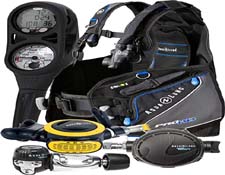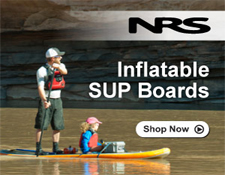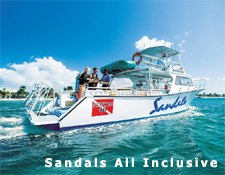Australia

Australia is one of the oldest landmasses on earth, originally breaking away from the super continent
'Gondwana' and settling in its current position about fifteen million years ago. The continent is also one of
the most stable of all landmasses and has been free of mountain-building forces for 100 million years.
The earliest European explorers who knew about the mysterious 'Terra Australis', were the Portuguese,
namely Luis Vaes de Torres who sailed the narrow strait between the tip of Cape York and New Guinea in the
16th century, followed by Dutch navigators Dirk Hartog, Van Diemen and Abel Tasman who mapped much of
the coastline but didn't show interest in settling a hostile and barren continent.
It was not until 1770 that the fertile east coast was sighted by Captain James Cook of the British Royal
Navy, in command of his ship the 'Endeavour', who landed in Botany Bay, south of Sydney. On the ship there
were several scientists, and a botanist who during their forays ashore made amazing discoveries of plants
and animals, never seen before.
After Captain Cook left Botany Bay he travelled north and charted the coastline reporting that the east coast
was fertile and suitable for settlement. He named the land New South Wales and claimed it for the British
Crown in the name of King George III.
During a stop in Queensland where his ship needed repair, Cook made contact with the local Aborigines and
was quite impressed with the apparent happiness they lived in.
After the American Revolution and following independence Britain had
nowhere to dispose of his unwanted citizens and a quick solution had to be
found. Overcrowded jails and a lack of raw material for ship building and
other industries encouraged the British Government to claim the
new-found land and develop it as a penal colony where convict labour
could produce crops and supply materials for England.
Captain Arthur Phillip, who became Australia's first governor, led the First
Fleet of 11 ships with 736 convicts and their guards into Port Jackson,
now known as Sydney Harbour, in 1788. Those who survived the long
voyage were confronted by an untamed land and food shortages.
Despite the severity of their sentences, many convicts were transported
for offences as moderate as stealing food, poaching wildlife on private land
or causing political unrest. Fewer than three per cent were convicted of
crimes of violence, 38 per cent were first offenders. The majority were from
urban metropolises such as London, Manchester, Liverpool, Dublin and
Glasgow. A total of 160,000 convicts were brought to the Australian
colonies until 1852 when transportation ended.
Many convicts who completed their sentences chose to stay in Australia
as farmers and labourers. Free settlers trickled in from 1793, lured by the
promise of cheap land and convict labour. Explorers opened up new
country in all directions and rich grazing land was discovered west of
Sydney. Wool soon became one of the country's most important industries.
During the 1850s, gold and copper discoveries brought a fresh influx of
immigrants from Europe, China and America. Some of the richest gold
seams were found at Ballarat, north of Melbourne and in central Western
Australia at Kalgoorlie while large copper deposits were discovered at
Yorke Peninsula in South Australia.
As the cities grew and the roads connecting them were upgraded a sense
of nationalism developed and Australia was declared a commonwealth on
January 1, 1901.
Cities
Australians are one of the world's most urbanised societies - nearly 90
per cent of the population is city dweller living along the coast.
The largest and most populous city is Sydney with 3.9 million people,
closely followed by Melbourne, its southern rival, counting 3.3 million.
Third largest city is Brisbane, 1.5 m, followed by Perth 1.3 m, Adelaide
1.08 m, Canberra 308,000, Hobart 195,000 and Darwin 86,000.
Australian cities are wide-spread and consisting more or less of suburban
one-storey houses on a quarter-acre block. There is a tendency to build
multi-storey office blocks in central business districts and the gleaming
glass and concrete towers dominate the skyline in most capital cities. In
the shadows of skyscrapers are labyrinths of interconnecting courts and
arcades offering a wealth of shopping, cafes, restaurants, and night-clubs.
In business life Australians are conservative dressers but this changes
abruptly as the week-end approaches. Australia is very much a beach
culture and people's attire reflects an outdoor lifestyle. All state capital
cities are built either on or very near the water; even Canberra, although
an inland city, is dominated by Lake Burley Griffin.
Electricity
The electrical current in Australia is 220-240 volts, AC 50Hz. The
Australian three pin power outlet is different from that in some countries
so you will need an adaptor. If your appliances are 110V, check if there is
a 110/240V switch. If not, you will need a voltage converter. Universal
outlets for 240V or 110V shavers are usually found in leading hotels.
Food & Restaurants
Food is fresh and plentiful at stores and supermarkets. Australia is known
for its superb seafood, tropical fruit, excellent beef and lamb and dairy
products. Unique local delicacies include kangaroo, buffalo, crocodile and
emu and a variety of 'bush foods'. Australia is a multicultural country and
so every conceivable type of cuisine is available - some cater for special
dietary requirements such as vegetarian, kosher and halal.
You can dine at elegant restaurants, leading hotels and other locations or
enjoy a 'pub' counter lunch. Bistros, cafes and family-style restaurants
offer good food at reasonable prices as well as the many low-cost eating
places, including fast-food chains and take-away food stores.
The fine food is complemented by excellent and inexpensive Australian
wines and locally brewed beer. Restaurants usually serve iced water on
request only. Many restaurants have a full liquor service; others allow you
to 'bring your own' -BYO- wine or beer to serve with your meal.
Many restaurants provide non-smoking dining areas.
Language
English is Australia's official language - though you will hear many colourful local expressions as well as the
Australian accent. Do not hesitate to ask questions; people in Australia are very helpful.
Taxis
Metered taxicabs operate in all major cities and towns. You will find taxi
ranks at transport terminals, major hotels or shopping centres or you can
hail taxis in the street. A light and sign on the roof shows when a cab is
vacant. The Yellow Pages of the telephone directory list taxi companies
that will send a radio-controlled cab to pick you up (for a small charge).
There is a minimum "flagfall" charge, then a charge for the distance
travelled. Small additional charges are made for tollways, luggage and
telephone reservations, otherwise the account shows on the meter. Taxi
drivers do not expect to be tipped, but will accept gratuities.
Telephones
Australia has a modern telephone system which enables you to make local calls,
long distance call within Australia (STD) and International Direct Dialling (IDD).
Local calls from Telstra public payphones are untimed and charged at 40c. Public
payphones accept all Australian coins and Telstra Smart Phonecards that can be
purchased from most newsagents and retail outlets. Creditphones accept most
participating credit card suppliers including Visa and can be found at international
and domestic airports, central-city locations and many hotels. Country Direct is a
service that lets you speak directly with an operator in your home country or you
can use an automated service.
Tipping
Tipping is not the general custom in Australia and service charges are not added
to accounts by hotels and restaurants. Porters at airports, taxi drivers and
hairdressers do not expect to be tipped although you may do so if you wish.
Porters have set charges at railway terminals, but not at hotels. In better-class
restaurants, it is usual to tip food and drink waiters up to 10 per cent of the bill for
good service. At any time, tipping is your choice.
Climate
Spending Christmas at the beach or skiing in August may seem strange but
the fact is, Australia's seasons are the opposite of the northern hemisphere -
summer starts in December, autumn in March, winter in June and spring in
September. Due to its size, geographical location and the lack of extensive
high mountain ranges Australia has a wide range of climates but generally no
extremes. The average temperature ranges from 23-26 degrees Celsius
above the Tropic of Capricorn with the southern areas more temperate
although subject to variations. This and the fact that Australia is the driest
continent on earth makes our land a great all-year destination. In fact in our
winter you can ski in the southern states one day and be diving at the Great
Barrier Reef in Queensland the next.
Customs
There are strict laws prohibiting or restricting the entry of drugs, steroids,
weapons, firearms, protected wildlife and associated products. All animals,
animal products, foodstuffs, plants and plant products are subject to
quarantine control, and must be declared on arrival. The penalties for
breaking these laws are severe. If you are uncertain about anything in your
baggage, declare it and bring it to the attention of a customs officer.
There is no limit on the amount of Australian and/or foreign cash that may
be brought into or taken out of Australia. However, amounts of more than
$A10,000, or equivalent in foreign currency, must be reported on arrival
and departure. Failure to do so is an offence under the law. Currency
means notes and coins of legal tender but does not include travellers'
cheques or other monetary instruments. Forms for reporting currency
transfers are available from customs officers at ports or airports.
Every traveller over 18 years of age may bring into Australia 1125ml of
alcoholic liquor and 250 cigarettes or 250 grams of tobacco products
duty/tax free. Duty/tax-free allowances of $A400 per person aged 18 or
over and $A200 per person under 18 are granted for other goods intended
as gifts. These articles must accompany you through Customs and must
not be intended for commercial purposes. In addition to these
concessions, tourists visiting Australia for a limited period may bring most
articles into the country duty/tax free, provided Customs is satisfied that
they are for their personal use and that they will be taken out of Australia
on departure.
Departing travellers may be able to claim a refund of the Goods and
Services Tax (GST) and Wine Equalisation Tax (WET) that they paid on
goods bought in Australia after 1 July 2000. The refund on goods, costing
$A300 or more, only applies to items carried as hand luggage. Tourist
Refund Scheme booths are located in the departure areas of international
terminals behind passport control, where travellers must show their
passport, international boarding pass, tax invoice from the retailer and the
goods. Customs officers process cash refunds and assist in completing
non-cash payment options.
Visa
Anyone wanting to enter Australia must carry a valid passport or similar
certificate of identification and everyone, except holders of Australian and
New Zealand passports, requires a visa to enter Australia.
The Australian visitor visa can be obtained from your nearest Australian
high commission, embassy or consulate. The Electronic Travel Authority
(ETA) is becoming progressively available through travel agents.
Currency Click Here For Currency Exchange
Australian currency is decimal with the dollar as the basic unit (100 cents equals one dollar). Notes come in
$100, $50, $20, $10, and $5 denominations. Coins come in 5c, 10c, 20c, 50c, $1, and $2 denominations.
Health
You can enjoy a healthy lifestyle in Australia, where standards of hygiene and health care are high,
particularly in food preparation. Doctors and dentists are highly trained and hospitals are well equipped. In
the event of illness, your hotel can call a doctor or refer you to one, or you can ask your embassy, high
commission or consulate for a list of approved doctors. Overseas visitors are strongly recommended to take
out health insurance before departure to cover the duration of their stay in Australia. Ensure you have
personal insurance or travel insurance with a comprehensive health component to cover the possibility of
illness or accident.
Visitors from New Zealand, the UK, Ireland, Malta, Sweden, Italy, Finland and the Netherlands are covered
by Australia's national health insurance scheme, Medicare. To be eligible, enrol at any Medicare office in
Australia. Before travelling to Australia contact your national health scheme to make sure you have the
correct documents you will need to be eligible to enrol in Medicare. The agreement provides health care for
immediately necessary treatment and do not cover treatment in a private hospital, treatment as a private
patient in a public hospital, dental care, costs arising en route, elective treatment, ambulance services or
allied health services. For some services covered by the agreements there may be an out of pocket cost.
The agreements do not cover repatriation in the case of illness or injury. As the nature of the agreements
vary, visitors may contact the Health Insurance Commission for further information.
The essentials for safe health practices are readily available in Australia and it makes sense to follow the
same simple health and safety rules you observe at home. Just as you should protect yourself from exposure
to the Australian sun, you should - when partying and having fun - protect yourself from other risks such as
exposure to HIV and other sexually transmitted diseases.
Vaccinations
Vaccinations are not required unless you have come from or visited a
yellow fever infected country or zone within six days prior to arrival. You do
not need any other health certificate to enter Australia.
|





























